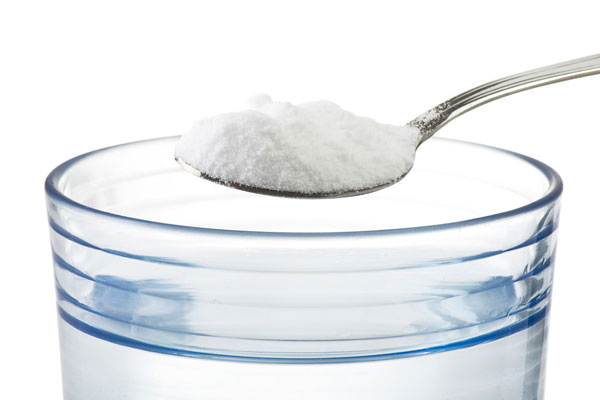Sodium bicarbonate boost

The latest race content, interviews, features, reviews and expert buying guides, direct to your inbox!
You are now subscribed
Your newsletter sign-up was successful
The use of sodium bicarbonate as a sports supplement for high-intensity performance has been documented since the 1930s, and although it never gained widespread popularity, bicarbonate supplementation was used extensively during the 1980s by short-distance athletes such as cyclists, swimmers and rowers.
The downside was that its use was often accompanied by unpleasant side-effects such as nausea and gastric distress - severe enough in many cases to be counterproductive.
However, recent research suggests that with the correct strategy, most of the side-effects of bicarbonate supplementation can be avoided.
Even better, it also seems that bicarbonate can boost performance in sustained, prolonged effort events - ie the kind of conditions encountered by cyclists during time trials or racing - not just sprint events. And now new Swiss research appears to confirm this.
The science
In a study carried out at the Institute of Human Movement Studies in Zurich, Swiss scientists conducted a randomised, placebo-controlled, double-blind crossover study (the most rigorous method of scientific testing) on bicarbonate supplementation in eight cyclists and triathletes.
The subjects took either a placebo or 0.3g of bicarbonate per kilo of bodyweight 90 minutes before a ‘critical power' test (ie the maximum average power you can maintain over a particular period of time). Bicarbonate or placebo ingestion followed by a critical power test on a cycle ergometer was repeated for five consecutive days.
The latest race content, interviews, features, reviews and expert buying guides, direct to your inbox!
On each day, the cyclists' power output levels were monitored by the researchers to see how long each subject could maintain their critical power output and to see whether bicarbonate supplementation produced an increase in performance.
In a nutshell
The first finding was that (as you might expect) taking the bicarbonate supplement significantly raised the level of circulating bicarbonate in the bloodstream (by around 25 per cent), which was also accompanied by a blood volume increase.
However, what really excited the scientists was that compared to the placebo supplement, the time that critical power could be sustained was increased by a whopping 23.5 per cent with bicarbonate supplementation (826.5 seconds v 669.0 seconds) - and this was maintained throughout the five days of testing.
So what?
The scientists (normally a very conservative bunch when it comes to making recommendations) concluded in no uncertain terms that their bicarbonate supplementation is not only worthwhile for a single event, but also that it can be taken daily in multi-day competitions (eg stage races) to maintain sustained high-intensity performance ability throughout the duration of the competition.
However, before you reach for the baking soda, bear in mind that bicarbonate supplementation aids maximal rather than moderate sustained exercise. Also, remember that taking 0.3g per kilo of your bodyweight shortly before riding might result in gastric distress.
A better strategy is to take that 0.3g/kg 2.5-3.0 hours before exercise, which will help minimise any tummy problems. Alternatively, a staged intake of three doses of 0.1g/kg over the two-three hours before riding has been shown to be well tolerated and equally effective. Needless to say, NEVER experiment before a race - always perfect your ingestion protocol during training!
This article was first published in the August 15 issue of Cycling Weekly. Read Cycling Weekly magazine on the day of release where ever you are in the world International digital edition, UK digital edition. And if you like us, rate us!
Founded in 1891, Cycling Weekly and its team of expert journalists brings cyclists in-depth reviews, extensive coverage of both professional and domestic racing, as well as fitness advice and 'brew a cuppa and put your feet up' features. Cycling Weekly serves its audience across a range of platforms, from good old-fashioned print to online journalism, and video.